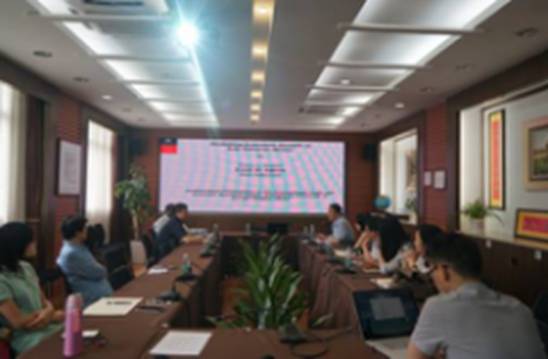On April 20, 2017, the Executive Deputy Dean of the Faculty of Business and Law of the University of Newcastle, Australia Prof. Frank Agbola, gave out his first lecture to the Institute for African Studies. The lecture, hosted by the Executive Vice President of IAS Mr. Liu Jisen, was welcomed by teachers and students of GDUFS. During the meeting, attendees raised a series of questions and had a discussion about these issues.

Professor Agbola described the status quo of the economic development in Africa: GDP growth was comparatively slow, taking up a low proportion of the global GDP; the overall foreign direct investment attracted to Africa was low, affected mainly by an uncertain economy; the most predominant problem that directly hampered the economic development in Africa was corruptions in African governments.

Professor Agbola applied Econometrics onto these issues, listed variables that influence the attraction of FDI, namely the consisting of the business environment, the cost of human capital, government administration and infrastructure construction, and evaluated how these variables influence the attracting of FDI and economic development. He concluded that the impact of FDI on economic development varies in countries with different development level.
At the end, Professor Agbola gave his suggestion to China based on the lessons he learnt from by analyzing the current situation of African countries: China needs to improve its business environment, enhance relevant regulations and laws, introduce high-quality FDI, and let the market plays a more active role.

